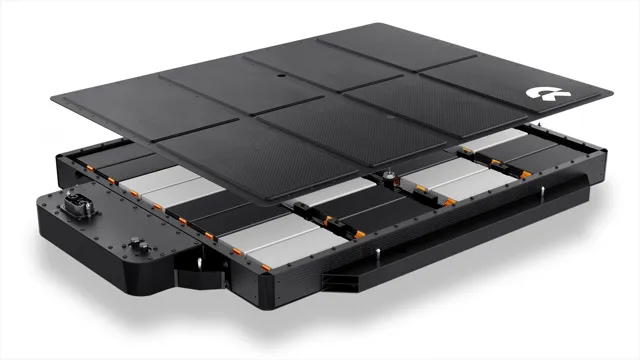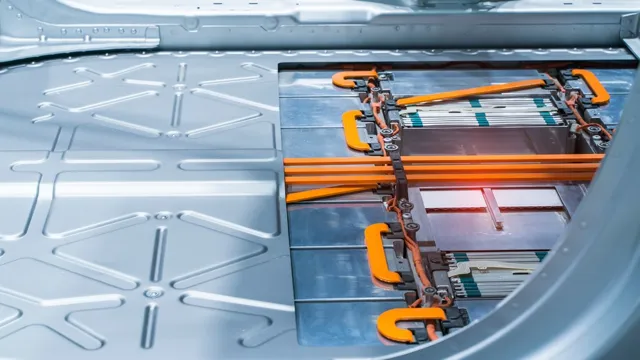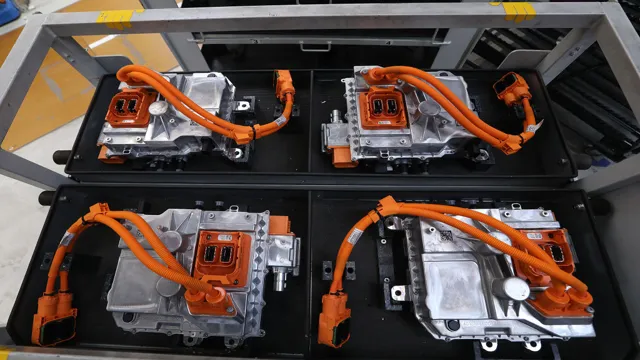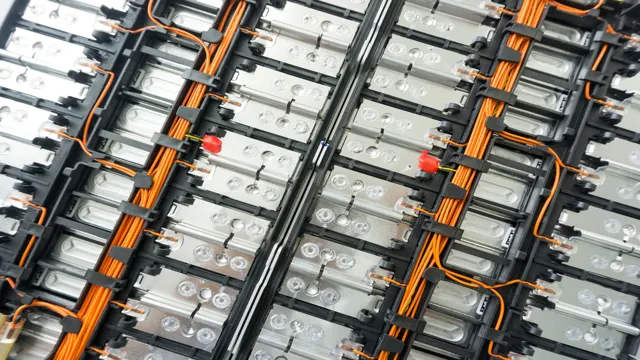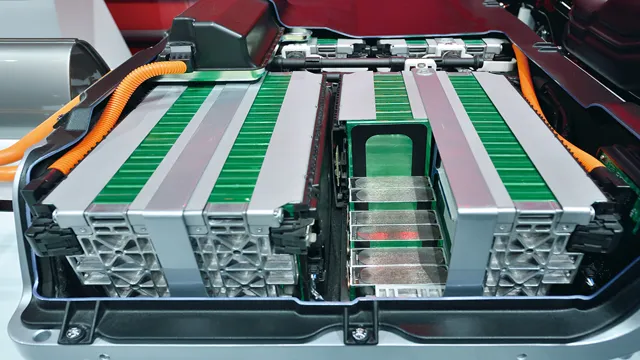Powering the Future: Exploring the Top Battery Technologies for Electric Cars
Electric cars are becoming more and more popular as people seek to reduce their carbon footprint and help the planet. However, one of the most critical challenges of electric cars is their battery technology. Choosing the right battery technology for an electric vehicle is essential in terms of range, cost, and environmental impact.
As a potential electric car buyer, you may wonder which battery technology is the best fit for you. With so many options to choose from, it is essential to have an understanding of the different battery technologies available to make an informed decision. In this blog post, we’ll dive into the various battery technology options for electric cars and examine the pros and cons of each.
Overview of Electric Car Battery Technologies
When it comes to the best battery technology for electric cars, there are several options to consider. The most common type of battery used in electric vehicles is lithium-ion, which offers high energy density and a relatively long lifespan. However, there are also promising advancements being made with solid-state batteries that could offer even higher energy density, faster charging, and increased safety compared to traditional lithium-ion batteries.
Another option is hydrogen fuel cells, which provide longer driving ranges and shorter refueling times than battery-powered vehicles, but the technology is still in its early stages and not widely available yet. Ultimately, the best battery technology for electric cars depends on a variety of factors, including cost, performance, safety, and environmental impact. As research and development continue, we can expect to see even more innovative battery technologies emerge that could revolutionize the electric vehicle industry.
Comparison of Lithium-Ion vs. Solid State Batteries
Electric Car Battery Technologies As the world shifts towards electric cars, the demand for effective and efficient battery technologies is growing like never before. Two of the most commonly used batteries for electric cars are Lithium-Ion and Solid-State. Lithium-Ion batteries are the most mainstream and popular technology used in EVs.
They are efficient, have a higher energy capacity, and are readily available. However, they are prone to overheating, which can be a significant concern. On the other hand, solid-state batteries have high energy density, require a shorter charging time, and pose no safety concerns.
But, they are expensive, have a low power density, and are in the research and development stage. Despite their differences, both battery technologies have the potential to revolutionize the EV market, and it will be interesting to see how they develop and improve over time to meet the growing demand for sustainable mobility.
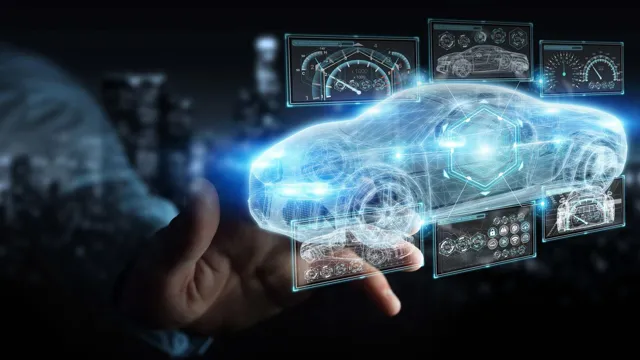
Analysis of Battery Performance vs. Cost
Electric Car Battery Technologies When it comes to electric cars, the battery is an essential component that affects both performance and cost. Modern electric cars use lithium-ion batteries, which are more efficient and have a higher energy density than earlier technologies like nickel-metal hydride batteries. Lithium-ion batteries are also more durable and have a longer lifespan, making them the preferred choice for electric vehicles.
However, they are still expensive to produce, and this cost is passed on to the consumer. Engineers are constantly working on ways to reduce the cost of lithium-ion batteries and improve their performance, but there are also other technologies in development that could eventually surpass them. These include solid-state batteries, which promise more energy density, faster charging, and improved safety.
While solid-state batteries are not yet widely available, they could be a game changer for electric cars in the next few years.
Factors to Consider When Selecting Battery Technology
When it comes to finding the best battery technology for electric cars, there are a few key factors to consider. First and foremost, you’ll want to look at the energy density of the battery—that is, how much power it can store per unit of weight or volume. This will impact the car’s range and the amount of space needed for the battery.
Additionally, you’ll want to consider the cost and durability of the battery, as well as its charging time and the availability of charging infrastructure. It’s also important to look at the environmental impact of the battery’s production and disposal. All of these factors can help you determine which type of battery technology is best suited for your needs and preferences.
Some popular battery technologies for electric cars include lithium-ion, solid-state, and hydrogen fuel cells, each with its own benefits and drawbacks to consider. Ultimately, the best battery technology for you will depend on your individual priorities and circumstances.
Range and Charging Time
When choosing a battery technology for your electric vehicle, it’s important to consider both range and charging time. Range refers to how far the battery can travel on a full charge, while charging time refers to how long it takes to fully charge the battery from empty. These factors will heavily impact your overall driving experience and how often you need to stop for charging.
For range, the type of battery and the size of the battery pack will play a significant role. Lithium-ion batteries tend to have a higher energy density than other types of batteries, so they can provide a longer range. Additionally, a larger battery pack will also provide more range, but it will come at the expense of increased weight and cost.
When it comes to charging time, the charging infrastructure available in your area will be a major factor. If there are numerous fast-charging stations nearby, you may be able to charge your battery quickly, even if it has a larger capacity. However, if you mainly rely on slow-charging at home, a larger battery pack may not be practical as it will take longer to charge.
Overall, it’s crucial to carefully consider range and charging time when selecting a battery technology for your electric vehicle. Look for the right balance between range and charging time that fits your driving needs and the available charging infrastructure in your area. By doing so, you can ensure that your electric vehicle will be a reliable and practical mode of transportation.
Battery Safety and Reliability
When it comes to battery safety and reliability, selecting the right battery technology is crucial. One of the key factors to consider is the chemistry of the battery. Different chemistries have different charge rates, energy density, and operating temperatures.
For example, lithium-ion batteries are commonly used in portable electronic devices because they have a higher energy density compared to other chemistries. However, they require careful monitoring to avoid overheating and potential safety hazards. Another important factor is the form factor of the battery.
Depending on the application, a smaller or more compact form factor may be necessary, but this may also impact the battery’s performance and overall lifespan. Ultimately, it’s important to carefully weigh all these factors when selecting a battery technology to ensure optimal safety and reliability for your device or application.
Environmental Impact and Sustainability
When it comes to selecting battery technology, there are several factors that need to be considered, especially with regards to the environmental impact and sustainability. One of the most important factors is the type of materials used in the production of the battery. For example, lithium-ion batteries are currently the most popular choice for electric vehicles due to their high energy density and high efficiency.
However, the mining of lithium can have a significant environmental impact, especially if it is not done sustainably. Another factor to consider is the durability and lifespan of the battery. A longer-lasting battery will not only be more environmentally friendly but will also be more cost-effective in the long run.
Finally, it is essential to consider the recyclability and disposal of the batteries at the end of their lifespan. Choosing a battery technology that can be easily repurposed or recycled will significantly reduce its environmental impact. Therefore, it is crucial to carefully consider all these factors while selecting the right battery technology to make sure it is sustainable, environmentally friendly, and highly efficient.
Top Battery Technologies for Electric Cars
As electric cars continue to gain popularity, battery technology is becoming more advanced. The best battery technology for electric cars is currently lithium-ion batteries. These batteries are lightweight, can store a lot of energy, and are becoming more affordable.
There are also some newer types of batteries being developed that show promise, such as solid-state batteries and lithium-sulfur batteries. Solid-state batteries offer the potential for higher energy densities and longer lifetimes, while lithium-sulfur batteries are even lighter and have even higher energy density. However, these new battery technologies are still in the research and development phase and not yet widely available.
For now, lithium-ion batteries remain the top choice for electric cars. With advancements in technology, we can expect even better battery options in the future.
Tesla’s Lithium-Ion Battery Technology
One of the most well-known battery technologies for electric cars is Tesla’s lithium-ion battery. The revolutionary aspect of this technology lies in its ability to store a tremendous amount of energy in a compact space. This is because lithium-ion batteries use a cathode made of lithium cobalt oxide, which has a very high energy density compared to other materials.
However, this technology also has its downsides, namely in terms of cost and safety concerns. Lithium-ion batteries are notoriously expensive to produce, and they can be prone to overheating and even exploding under certain conditions. Despite this, Tesla has continued to refine and improve its lithium-ion battery technology, incorporating new safety features and introducing more affordable models, which has helped to make electric cars more accessible to the general public.
Solid State Batteries from Toyota and Volkswagen
Electric cars have revolutionized the automotive industry, and with their rise in popularity, innovative battery technologies have emerged. Two of the top battery technologies for electric cars are solid-state batteries from Toyota and Volkswagen. Solid-state batteries are an exciting breakthrough for the automotive industry as they have a higher energy density and are safer than traditional lithium-ion batteries.
These batteries use a solid electrolyte instead of a liquid electrolyte, which reduces the risk of leakage and overheating. Additionally, these batteries have a longer lifespan and faster charging times. This technology is still in its early stages, but companies like Toyota and Volkswagen are investing heavily in their development.
With the demand for electric vehicles increasing, solid-state batteries have the potential to become the future of energy storage for cars.
Future Developments in Battery Technology
Electric cars have seen a remarkable growth in recent years, and the demand for high-performance batteries has also increased. The current lithium-ion technology has been the primary choice for powering electric cars, but other battery technologies have been in the developmental phase. Solid-state batteries are considered to be the next big thing in the world of electric cars as they have the potential to offer a higher energy density, faster charging times, and longer lifespan.
Additionally, solid-state batteries are safer and more environmentally friendly than their lithium-ion counterparts since they do not use flammable liquid electrolytes. However, solid-state batteries are still costly and challenging to produce on a large scale, making their adoption in electric cars a long-term goal. Overall, the best battery technology for electric cars is still evolving, and it will be exciting to see what future developments will bring to this rapidly expanding industry.
Emerging Technologies to Watch in the Coming Years
When it comes to technology, battery life is always a concern. But emerging developments in battery technology are poised to change that. One promising development is solid-state batteries.
Traditional lithium-ion batteries use a liquid electrolyte to regulate the flow of ions between electrodes, but solid-state batteries replace this liquid with a solid electrolyte. This change offers several benefits, such as increased energy density, higher power output, and improved safety. Another promising development is flow batteries.
These batteries use two tanks of liquid electrolyte to store energy and can be recharged by simply replacing the used electrolyte with fresh electrolyte. This makes it possible to extend the battery’s lifespan by simply replenishing the electrolyte, which can be particularly useful in applications such as renewable energy storage. With these and other advancements, the future looks bright for battery technology.
Soon, we may see batteries that last longer, recharge more quickly, and store more energy than ever before.
Conclusion
In the race for the best battery technology for electric cars, it’s clear that innovation and efficiency are key. As we continue to explore new materials and designs, the dream of a world powered by clean, green energy is becoming more of a reality every day. So whether you’re a die-hard gearhead or an eco-conscious crusader, remember this: the best battery is the one that gets you where you need to go without compromise.
And as we continue to push the limits of what’s possible, the future of sustainable transportation has never looked brighter.”
FAQs
What is the current technology used for batteries in electric cars?
The current technology used for batteries in electric cars is lithium-ion batteries.
What are the advantages of using lithium-ion batteries in electric cars?
The advantages of using lithium-ion batteries in electric cars are higher energy density, longer lifespan, and faster charging times.
Are there any other battery technologies being researched for electric cars?
Yes, there are other battery technologies being researched for electric cars, such as solid-state batteries and flow batteries.
How long does it take to charge an electric car with the best battery technology?
With the best battery technology, it can take as little as 15 minutes to charge an electric car to 80% capacity.
How much does it cost to replace the battery in an electric car with the best battery technology?
The cost to replace the battery in an electric car with the best battery technology can vary depending on the make and model of the car, but it can be anywhere from $5,000 to $20,000.
